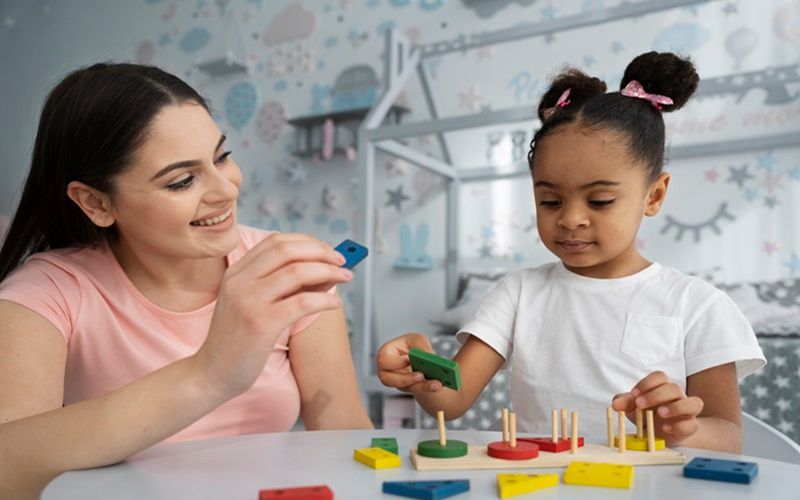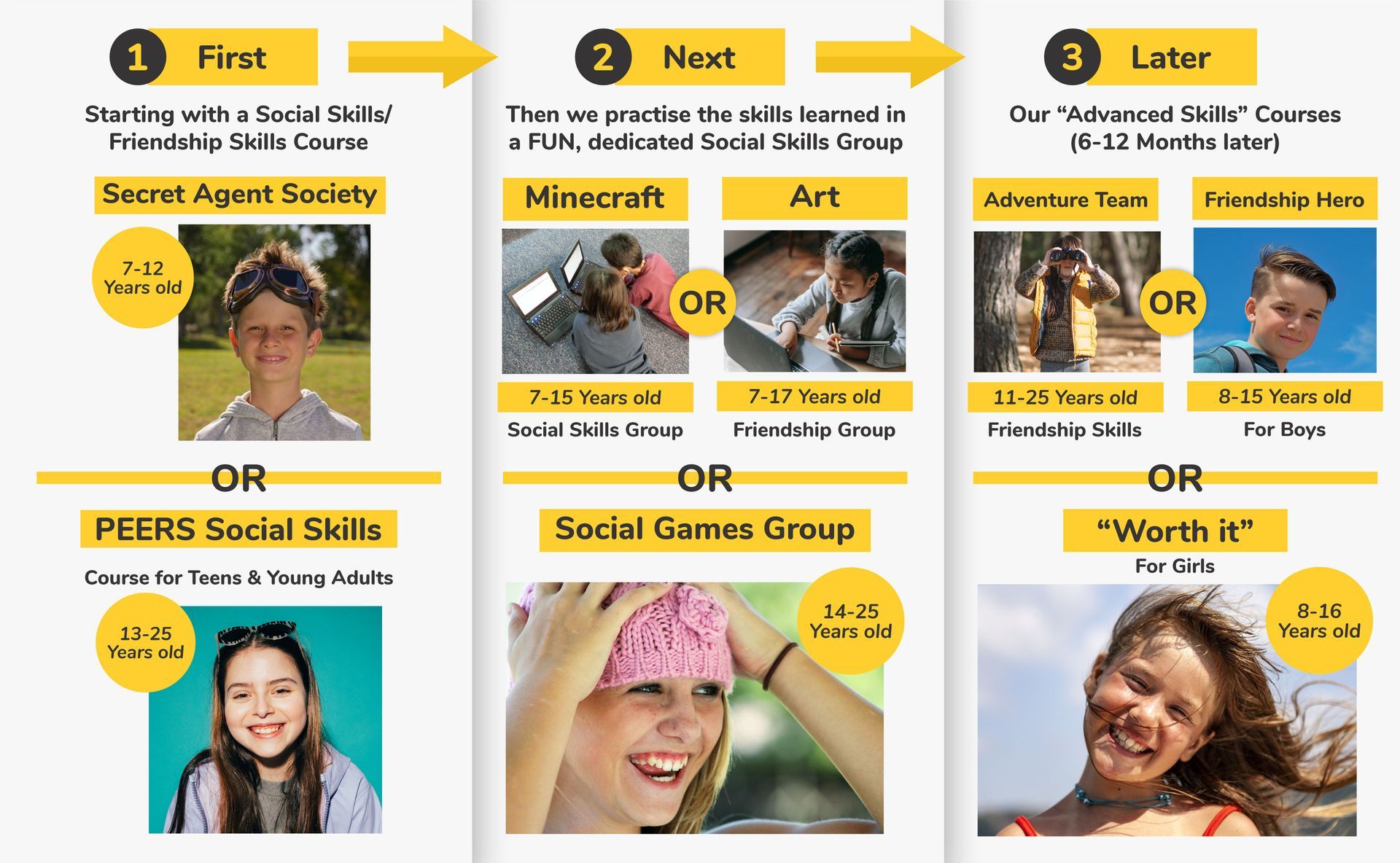How to Choose the Right School for Autistic Kids in Australia
Primary school for Autism can be challenging when your little one is just starting school. As tricky as navigating through finding the right school for autism can be, there are some simple yet essential things to look out for.
According to Autism Aspergers Advocacy Australia (A4) organization, the Australian government must support the welfare of early intervention in education and related activities with exceptional support, which is now becoming more recognized in schools across Australia.
Knowing your options when choosing good schools for autism can help you make an informed timeline and decision for your child.

Guide to Selecting an Autistic School
When considering an excellent autistic school, here is a tested roadmap we share with parents with amazing skills to make their navigation easy.
- Do you want to choose a mainstream school for your child?
- Do you want to look for special autistic trained teachers, staff, curriculum and activities for your child while still attending the mainstream school?
- Do you want a private school with a particular needs-based focus on children with autism?
- Are you looking for a specialized school that already works with autistic children under their supervision?
- Do you want to home-school your child instead but learn more about autistic study work, activities, and management techniques
- In your particular case, distance education and schooling can be an option.
Keep in mind when deciding on your child, you must keep in mind the level of autism.
Once you are through the preliminary round of choosing what kind of autistic school you want your child to attend, what should be your next step?
Here are some key factors to consider when choosing primary schools for autism;
How to Choose the Best School for Autism in Australia Near You?
Your first litmus test to pick the right school is to ask for honest reviews. Online autistic parent communities in your locality can be the first stop to look for honest feedback.
You can always go for open days, school tours, or private visits. Ensure you look for a welcoming demeanour, an open conversation from teachers or principals, and connections with other parents to see how their children perform at school.
Once satisfied with the environment, here are some other detailed vital factors to look for;
Individual Learning Plans
Do they offer a detailed curriculum, plan, activities, and stationery for autistic students? If yes, that is your first cue at a quality autistic school. Understanding the different strengths and challenges of children with autism is crucial.
Also, look for behavioural and emotional therapies cultivated through play and other fun activities to understand the needs of autistic children.
Micheal and the Team have to say from their experience with parents,
“Any school can claim to give individualised support. You will know when you walk through the school to see if they have a culture of actually doing that in practice.”
Recommended Read
-
Helping your Child Recognize the difference between ‘playful joking’ vs ‘actual teasing’
Social Interaction and Related Activities
What activities does the school encourage amongst children? Do they stress social interaction with peers? Do they introduce fun activities that encourage children to make friends and have self-confidence? What will the inclusion look like? As a parent, you are entitled to all of these critical questions.
Consider asking about any activity they do in music or sports that encourages healthy social interactions.
Recommended Read -
How to Respond to Bullying?
Behavioural Development
Behaviour regulation is significant, so asking for specially trained teachers for autism should be a top priority on your query list.
You should know how peer and teacher interactions will encourage or discourage behaviour patterns in children.
You also should stress what kind of behaviour patterns your child has and would need help with for better learning and peer interaction at school.
Communication and Collaboration
Open lines of communication between parents and educators are crucial. Consider how well the staff communicates with parents when looking for an excellent primary school.
Are they open to discussions about your child's progress and challenges? Do they involve you in decision-making processes?
A school that values collaboration and partnership with parents can significantly impact your child's educational journey.
Michael and the Team at Amazing Skills said: “Plenty of teachers care deeply about your child, but others just don’t understand your child and will find communicating and collaborating with you annoying. Dodge that at all costs.”
Recommended Read - How to Start a Conversation?
Sensory-Friendly Environment
Sensory sensitivities are common among children with autism. Look for a school that understands this and creates a sensory-friendly environment.
Consider noise levels, lighting, classroom layout, and access to quiet spaces. A school that considers sensory needs can help your child feel more comfortable and focused, enhancing their learning experience.
Here is what Micheal and Team share in their experience: “Loud school bells, fluorescent lights, crowded areas… Schools are a war zone for kids with sensory issues. You’ll need to plan well with your child’s teacher.”
Transition Support
Transition support should be an obvious thing worth doing, but some schools don’t value it. So then they spend more time dealing with upset kids instead of supporting them before they get upset.
Transition support saves many other issues for your child, even those coming up.
Transitions can be challenging for autistic children, whether it's moving to a new grade, changing schools, or transitioning to adulthood. Consider how the school supports these transitions.
Are there transition programs in place? Does the school offer guidance and resources to help your child smoothly navigate these changes? A school prioritizing smooth transitions can significantly support your child's growth and development.
Conclusion from Michael and Team (at Amazing Skills)
Remember, finding the right school for your autistic child is a journey. Trust your instincts, visit different schools, and ask questions.
Seek out recommendations from other parents of autistic children or local support groups. Your child deserves a school that embraces their uniqueness and gives them the tools to thrive.
Considering these factors, you can make an informed decision and find a school that will provide your child with a supportive, inclusive, and nurturing educational experience.
Together, let's empower our exceptional autistic children and ensure they have access to the education they deserve.
(Video) Here's what to chat about with your child's teacher:
If you're finding it tricky to get support for your child with Autism, get in touch with the Amazing Skills team.
They'd love to help.









